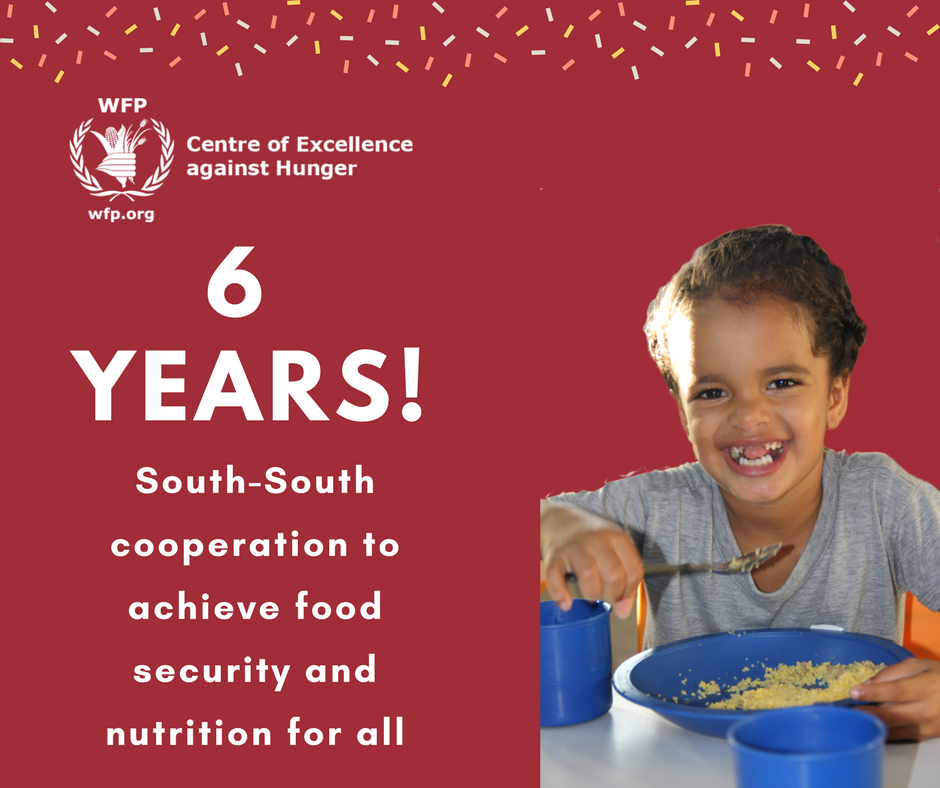
The WFP Centre of Excellence against Hunger celebrated its sixth anniversary on 7 November. During this period, the WFP Centre has engaged in South-South cooperation initiatives with over 50 countries, in areas such as food security, nutrition, and social protection. The main topic of the Centre’s cooperation efforts, however, is school feeding. The Centre has provided learning opportunities and technical assistance to around 30 countries to help them design and implement sustainable school feeding programmes.
The WFP Centre of Excellence has contributed to changing the understanding of governments in those 30 countries about the potential of school feeding: in addition to providing food to children in schools, school feeding programmes are an inter-sectoral food and nutrition security policy, with multi-dimensional impacts. Education, nutrition, and health are directly benefited by school feeding programmes, and when they are linked to local agriculture they also contribute to strengthening small-holder agriculture and local economies.
Impact evaluation
According to an external impact evaluation, the WFP Centre contributed significantly to the overall recognition of school feeding as a strategy to promote sustainable development. The Centre also promoted the involvement of high-level government actors, which increased countries’ commitment to school feeding. The partnerships fostered by the Centre helped to strengthen technical skills crucial to the development of national school feeding policies linked to local agriculture.
The impact evaluation covers the period from 2011 to 2016 and was carried out by a consortium of independent organizations, composed by the Centre for Studies and Articulation of South-South Cooperation and Move Social. The research focused on the impact of the Centre of Excellence’s work on 28 countries receiving continued technical assistance. The research team conducted interviews with 66 national and international stakeholders.
Of those interviewed, 71% mentioned an increase in the purchase of food produced locally since the beginning of the partnership with the Centre, for use in school meals. 100% of respondents considered that exchanges and capacity building activities are relevant and responsive to their needs, and 69% recognized the Centre’s contribution to greater country autonomy in the design and implementation of school feeding policies and programmes.
The Centre of Excellence against Hunger was created in 2011 as the result of a partnership between WFP and Brazil. It is a global forum for policy dialogue and South-South cooperation in school feeding, nutrition and food security programmes. The Centre of Excellence supports governments in Africa, Asia and Latin America in developing sustainable solutions to hunger and it provides policy and programme advice, technical assistance, and learning opportunities and brings southern nations together to help them develop their own programmes.




